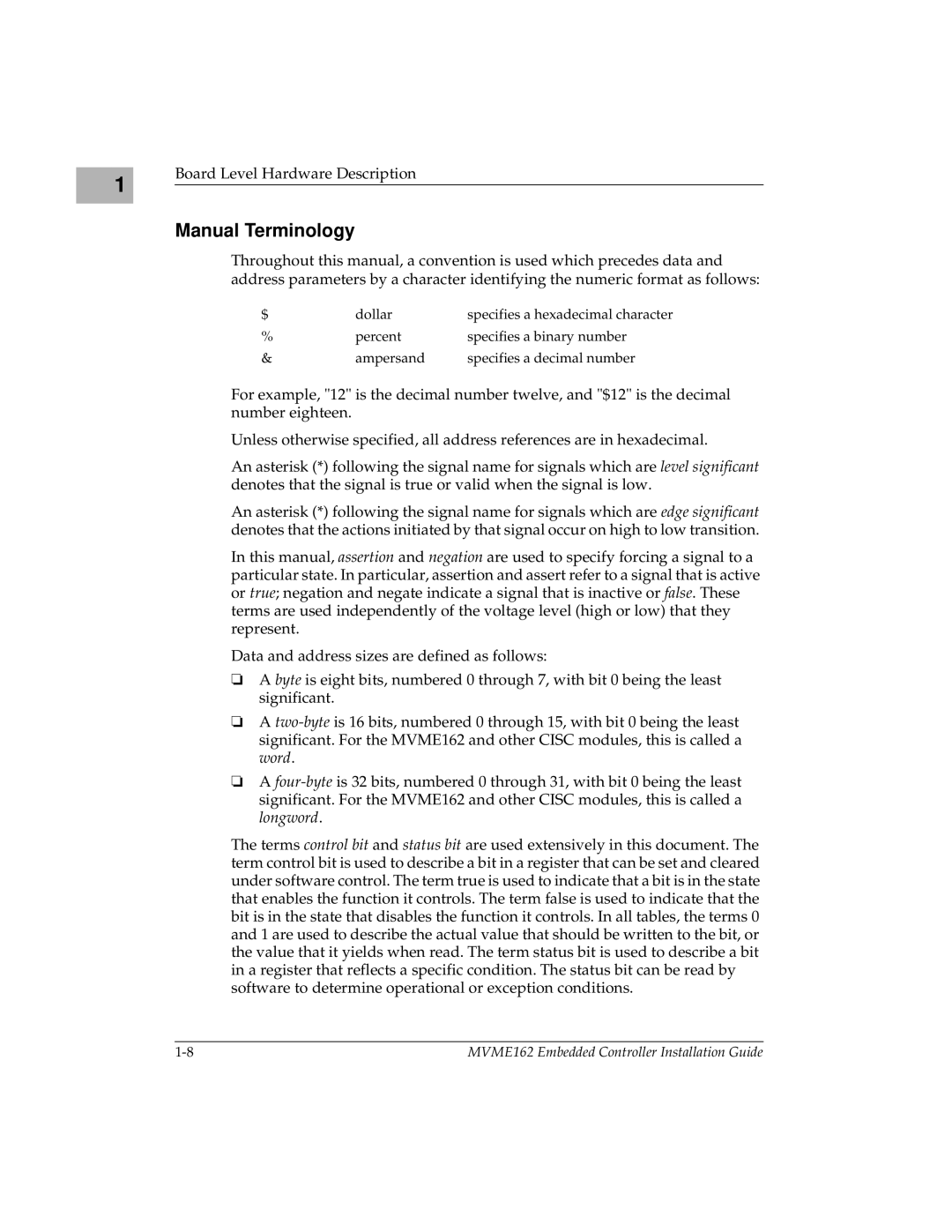
1
Board Level Hardware Description
Manual Terminology
Throughout this manual, a convention is used which precedes data and address parameters by a character identifying the numeric format as follows:
$ | dollar | specifies a hexadecimal character |
% | percent | specifies a binary number |
& | ampersand | specifies a decimal number |
For example, "12" is the decimal number twelve, and "$12" is the decimal number eighteen.
Unless otherwise specified, all address references are in hexadecimal.
An asterisk (*) following the signal name for signals which are level significant denotes that the signal is true or valid when the signal is low.
An asterisk (*) following the signal name for signals which are edge significant denotes that the actions initiated by that signal occur on high to low transition.
In this manual, assertion and negation are used to specify forcing a signal to a particular state. In particular, assertion and assert refer to a signal that is active or true; negation and negate indicate a signal that is inactive or false. These terms are used independently of the voltage level (high or low) that they represent.
Data and address sizes are defined as follows:
❏A byte is eight bits, numbered 0 through 7, with bit 0 being the least significant.
❏A
❏A
The terms control bit and status bit are used extensively in this document. The term control bit is used to describe a bit in a register that can be set and cleared under software control. The term true is used to indicate that a bit is in the state that enables the function it controls. The term false is used to indicate that the bit is in the state that disables the function it controls. In all tables, the terms 0 and 1 are used to describe the actual value that should be written to the bit, or the value that it yields when read. The term status bit is used to describe a bit in a register that reflects a specific condition. The status bit can be read by software to determine operational or exception conditions.
MVME162 Embedded Controller Installation Guide |
